The News-Hub/ Articles
Back to Articles
Recommended Articles
The Environmental Impact of Disposable Masks: The Pandemic's Plastic Problem
What is the Pandemic’s Plastic Problem?
When the Coronavirus pandemic began to take international effect in the early spring of last year, there was a mad scramble by scientists, advisors and politicians to understand and design a plan to resist the virus. A large part of this involved the supply of PPE, or personal protective equipment, to those working on the front line, which was undertaken with moderate success in the UK.
It was debated for a short while as to whether the general public needed to wear face coverings in public. There was conflicting advice from scientists, and prolonged arguments about personal freedom in the media and online, but eventually, Britain joined the rest of the world in legislating that masks had to be worn in shops, on public transport and in most workplaces by July.
The effects of the pandemic on the global environment were not discussed much in these first few months - as our collective health was the main focus of our efforts and attention. Now that we have had (possibly too much) free time for reflection, we must see that in fighting the COVID pandemic we have cut corners, and relaxed our vigilance in one of the main areas of the fight to protect our natural landscape: plastic waste.
The UN trade body, UNCTAD, estimates that global mask sales in 2020 totalled $166 billion, up over 200 times from $800 million in the previous year. To combat the initial shortage of PPE, mask production in China reached 12 times its usual production rate - this kind of mass production is obviously unsustainable and the World Health Organisation later recommended a 40% reduction in the manufacture of single use face coverings, as they are made using plastic.
The disposable nature of single-use masks is a big problem for environmentalists. The masks that are worn in hospitals by front line workers are handled separately by companies equipped to handle class A hazardous waste. The masks worn by the general public, however, cannot be recycled, and occupy a ‘grey area’ between general waste and regular waste, meaning they can only find their way into landfill sites in huge quantities or end up discarded illegally.
As I'm sure you can imagine, it really is a huge quantity of masks. A study by the Plastic Waste Innovation Hub declares that if every person in the UK used one disposable mask each day for a year, this would create 66,000 tons of contaminated waste and 57,000 tons of plastic packaging – a total of over 128,000 tons.
The obvious worry is this waste will end up scattered across the Earth’s man-made and natural landscapes, littered across cities, forests, beaches, and eventually across the ocean floor. This process has already begun - to illustrate the spread of used masks discarded across France, activists walked 880 Kilometres from Marseille to Paris in October and collected 6,300 blue masks.
The UN Environment Programme (UNEP) has since estimated that 75% of used masks will end up in landfill sites or floating in the sea - the financial cost of this could be $40 billion.

Photo by Mohammad Shahhosseini on Unsplash
What is Causing the Plastic Problem, and How Bad is it?
The first evidence of our pandemic plastic problem hit the international news in Hong Kong in June, after activist Gary Stokes (the founder of OceanAsia) filmed himself collecting 70 discarded masks along 100m of beach. This is a serious health risk, as it is impossible to tell if coronavirus bacteria is still living on the material, which it can for up to seven days. The Purple Turtle Co covered this news at the time, making the observation that if there were masks floating in the open ocean there was a serious risk of harm to wildlife - turtles, dolphins and finless porpoises, for example, can be killed if any plastic enters their digestive system.
Plastic can easily break down ecosystems by making small but incremental damage to the natural environment. Some animals will mistake bits of plastic for prey and choke on pieces of litter; smaller animals can become entangled in the elastic of the mask, or in broken plastic gloves. If one animal is removed from the food chain of an ecosystem, this inherently harms the other creatures that live around it.
Visual proof that this is happening came soon after. The video below, provided by The Guardian News, depicts Laurent Lombard – Operation Mer Propre – where a group of divers surround the French riviera, and swim through a sea of pandemic related waste. The video makes disturbing viewing - used masks and gloves float like jellyfish across the ocean floor as fish and other sea life dart around the rubbish. At one point a diver lifts a mask to reveal an octopus sheltering beneath, he picks up empty hand sanitizer bottles among the usual debris of cups, cans and food packaging and shows them to the camera.
There have been more recent reports of the California coastline being littered with used PPE as you would normally see discarded cigarette butts. This is a symptom of the fear and isolation that is being caused by the virus; the planet has moved down the list of priorities for most people, so they use the masks and throw them onto the pavement.
The masks blow into storm drains and into rivers (according to the EPA 20,000 tons of waste is cleared from rivers in the US every year), eventually reaching the ocean. If these masks end up in the Pacific waters surrounding the Californian coast, they directly endanger the already rare Guadalupe fur seal and the Hawaiian Monk seal.
The UNEP reports that the danger does not end here; they have produced a fact sheet on the topic which describes the possibility of a buildup of used PPE so large that it might lead to the open burning or incineration of masks which will release dangerous chemicals into the atmosphere. This is because of the material that single use masks need to be made from to ensure they actually protect us against the virus: a polymer called polypropylene which lasts for centuries, and breaks down very slowly into microplastics, and then into nanoplastics which will remain in the environment for thousands of years.
Just one mask will eventually become millions of nanoplastic particles which can enter the food chain, bringing toxic chemicals and bacteria with it, creating a danger to us a long way into the future. To put it simply; it is estimated that more than 100,000 marine mammals, and over 1 million seabirds are killed by plastic annually. The plastic absorbs toxins from the ocean which poison the animals that consume it. Whatever eats these animals are eventually poisoned too, and the toxins move up the food chain until they are eaten by us, then it starts to affect our health as well.
According to Tanveer M. Adyel in Science Magazine, “If the global population adhered to a standard of one disposable face mask per day, the pandemic could result in a monthly global consumption and waste of 129 billion face masks and 65 billion gloves.”

Photo by Naja Bertolt Jensen on Unsplash
Are Reusable Masks the Solution?
It is important to stress that you should only use single use masks if you have no other alternative.
Buy a reusable mask; they are better for the planet and it's cheaper in the long term. Have a back-up, so if you forget or damage your usual one, you don't have to resort to buying a disposable mask that will either end up in a landfill site, floating on the ocean floor, or in the belly of an endangered seal.
You can even make yourself a custom disposable mask at home to your own design; just make sure there are at least three layers of plastic covering your nose and mouth.
If possible, find a mask that does not use filters as these are made of the same plastic as blue masks, and put it into the washing machine with your usual laundry. According to University College London Research, this will cause the least damage to the environment possible.
If You Do Have to Use a Single-Use Mask, Here is a Guide for How to Dispose of a Disposable Mask Safely:
COVID can last on plastic for 72 hours so as soon as you are finished with it, “snip the straps” to protect birds and put it inside a general waste bin and close the lid.
Never put it in the recycling bin, it’s a health risk to the workers that collect your rubbish and can damage the crushing equipment at the recycle plant if it gets caught.
You do not need to use latex gloves apart from professionally, just ensure that you keep your hands clean and sanitised, and avoid touching your face.
If we limit the use of disposable PPE to only those who need it, the UK demand drops from an estimated 24.7 billion masks a year to about 136 million a year, a huge reduction.
The International Waste Crisis: How Can We Better Protect the Earth From Plastic Pollution?
As with most environmental concerns, there are more complex issues at hand than the simple consumer choice between reusable and disposable. There are global politics at play that are already damaging the recycling industry; as a large proportion of the world’s population was placed in some kind of lockdown to slow the spread of COVID-19, the global demand for petrol dropped sharply in parallel with oil prices. The price of oil has a huge influence on nearly every aspect of the global economy and international industry - in this case it reduced the cost of making new plastic from fossil fuels.
It’s cheaper to make new plastic than recycle it, so nobody is recycling it anymore. More new plastic means more plastic dumped and scattered, slowly decomposing and harming the natural environment, and there is a serious amount of new plastic being made right now.
A sample study in Singapore over their eight week lockdown showed take-away, home delivered shopping and general delivery packaging added an additional 1400 tons of plastic waste to their normal levels. Of course, this is not isolated to Singapore - the global plastic packaging industry has grown at an annual rate of 5.5% from $909.2 billion in 2019 to approximately $1000 billion dollars at the end of 2020. The pandemic is believed to be the main factor in this increase in demand.
This is not an issue that has surfaced much in British politics; the Green Party has suggested a ban on blue masks being shown within the media (in television, news or advertisement), recognising the fact that face coverings may be required for years to come and the government needs to do more to tackle the issue of plastic pollution.
Global change is necessary if we have a hope of preventing permanent damage to the oceans as a result of plastic pollution. We are facing the threat of a global health crisis which skews the priorities of society - fear of the pandemic could push people into poor waste management practices like burning waste or overcrowding landfill sites. The recycling industry needs targeted support and economic intervention to encourage proper waste management practices that put the environment first and discourage the production of new plastic.
What are the most effective solutions to the pandemic's plastic problem? What can we do as a society to reduce the harm that we are doing to the planet with waste, once we have made the permanent change to reusable face coverings?
There have been attempts to make single use masks recyclable, but this is proving to be unrealistic on an international scale, with many nations still in high COVID alert. A team at Swansea University are experimenting with turning face masks and other items of plastic PPE into green fuel using new techniques like letting sunlight break down the items into hydrogen atoms and testing whether this process can successfully kill virus particles which could potentially save the NHS a lot of money.
UNCTAD is suggesting that we try new designs for single use masks using new materials like natural fibres, rubber or rice husk to manufacture PPE. These can be biodegradable and would bring huge economic benefit to the countries where these materials grow naturally. In 2020, a study was published by The Pew Charitable Trusts in coordination with SYSTEMIQ called “Breaking the Plastic Wave: A Comprehensive Assessment of Pathways Towards Stopping Ocean Plastic Pollution.” It was endorsed by the head of the UNEP and forecasts that unless there is a serious response to this issue on an international scale, the amount of plastic dumped into the ocean will triple by 2040 from 11 to 29 million tonnes a year. In the same 20 year span, 80% of plastic pollution could be eliminated by “replacing inadequate regulation, changing business models and introducing incentives leading to the reduced production of plastics.”
All of these are actions that have to be taken by governing bodies and organisations. We, as ordinary people might feel like we can have almost no impact on this, that it is out of our hands. But, as individuals, we can make a difference to the fate of our planet, starting with understanding the source of the problem, influencing those in power by making it clear that we want our oceans protected, and by making smart environmental choices like buying a reusable mask.
Empty content. Please select category to preview

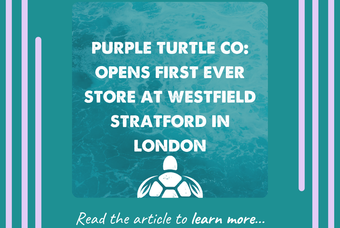

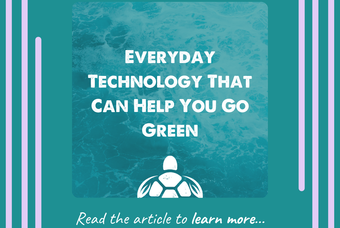
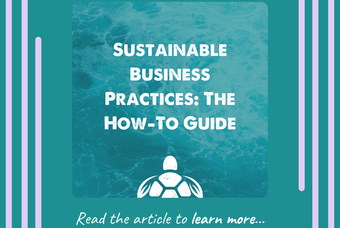
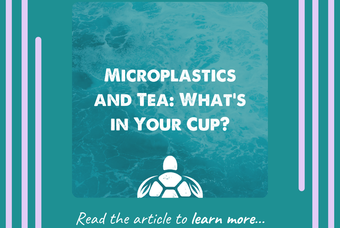
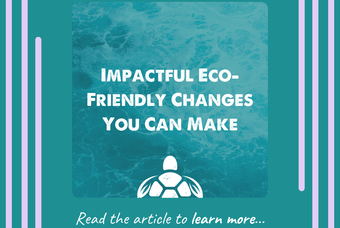
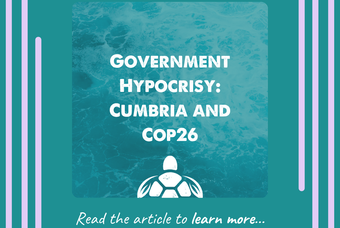
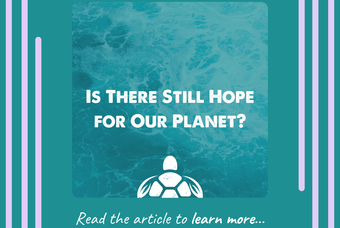
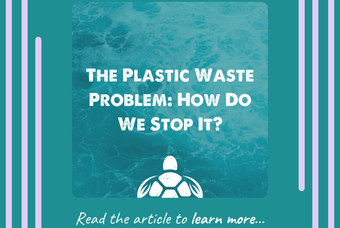
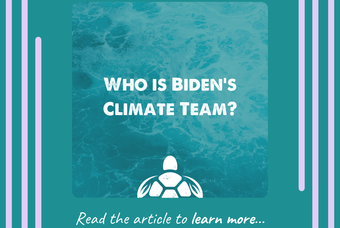
0 comments. Write a comment